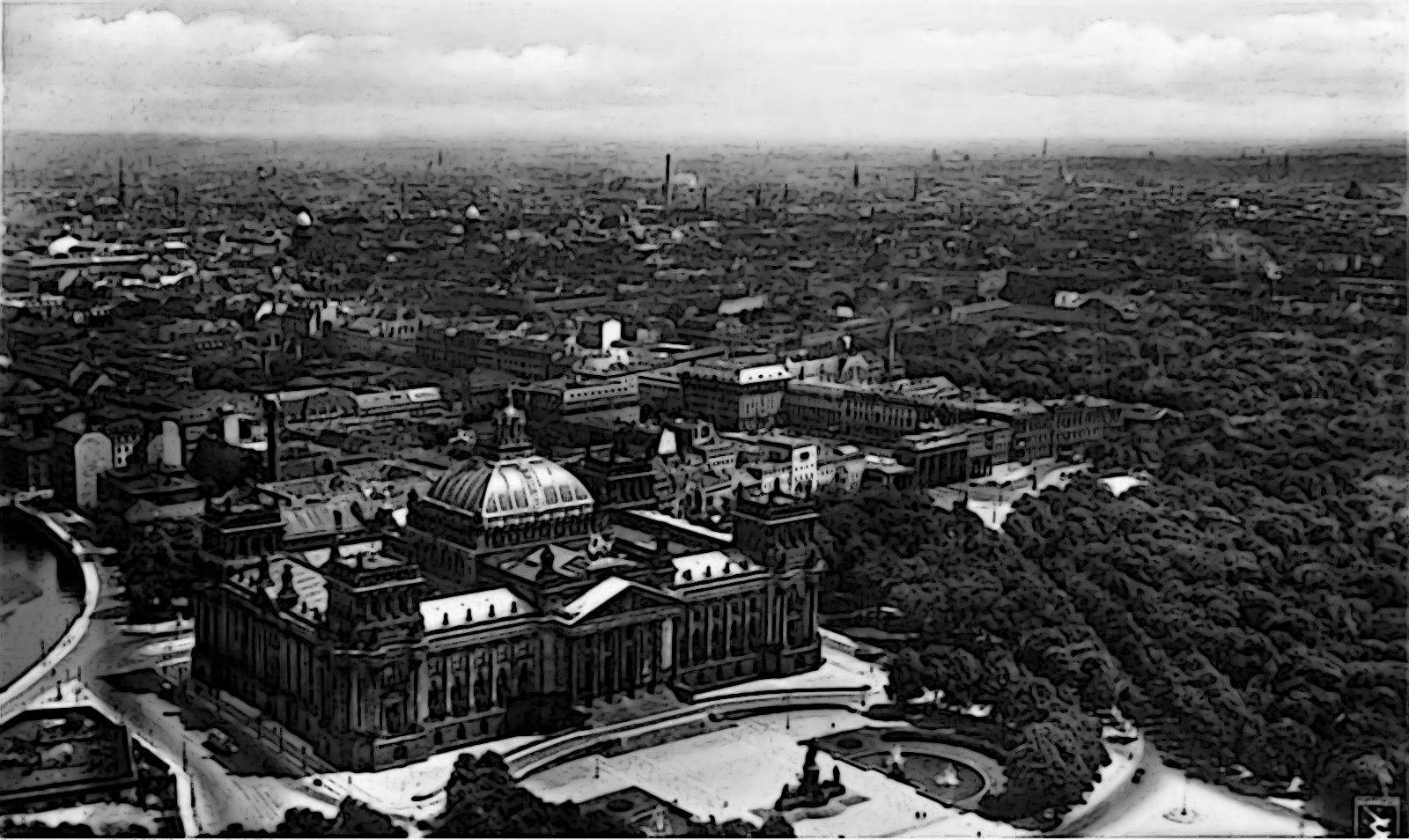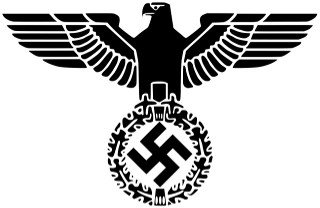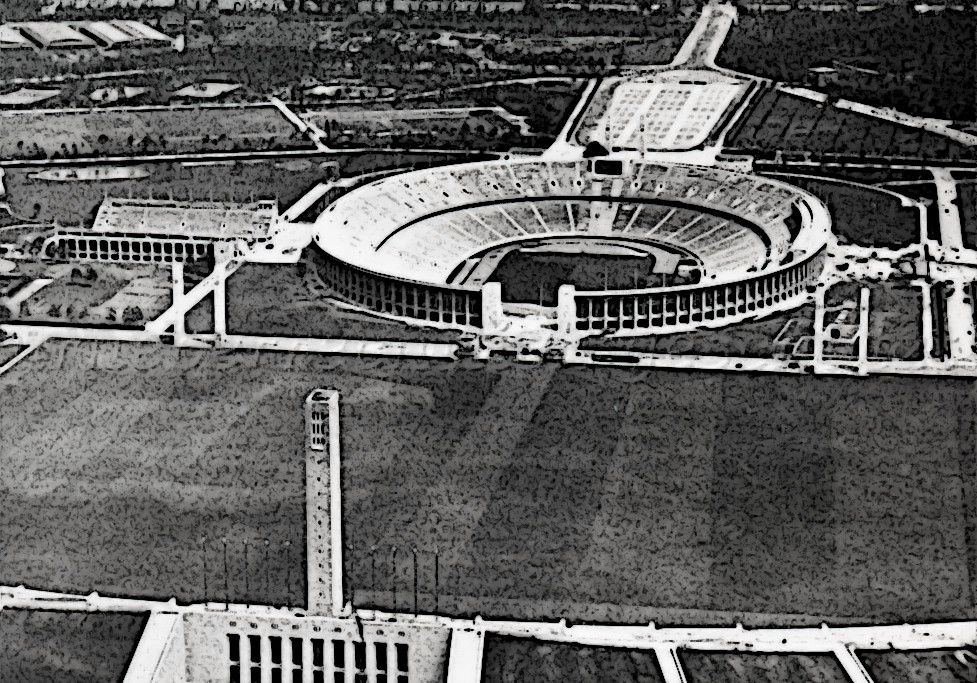Berlin 1933
Eine Einführung: An Introduction
Berlin prospered for centuries under the rule of Gustav, a harsh and strict prince who tolerated no disobedience. For centuries the city had a small but powerful Kindred population which ruled over all mortal matters of importance without fear of retribution; Gustav upheld the Masquerade and none dare defy him.
Quote
"We like our Berlin immensely -- an ugly place it must be to anyone who comes to it hipped or solitary..." -- George Elliot
Appearance
City Device
Climate
Berlin has a Maritime temperate climate according to the Köppen climate classification system. There are significant influences of mild continental climate due to its inland position, with frosts being common in winter and there being larger temperature differences between seasons than typical for many oceanic climates. Summers are warm and sometimes humid with average high temperatures of 22–25 °C (72–77 °F) and lows of 12–14 °C (54–57 °F). Winters are cool with average high temperatures of 3 °C (37 °F) and lows of −2 to 0 °C (28 to 32 °F). Spring and autumn are generally chilly to mild. Berlin's built-up area creates a microclimate, with heat stored by the city's buildings and pavement. Temperatures can be 4 °C (7 °F) higher in the city than in the surrounding areas.
Annual precipitation is 570 millimeters (22 in) with moderate rainfall throughout the year. Snowfall mainly occurs from December through March.
Calendars
Districts
File:Pharus Map Berlin 1929.jpg
Demonym
Berliner
Districts
Economy of Nazi Germany
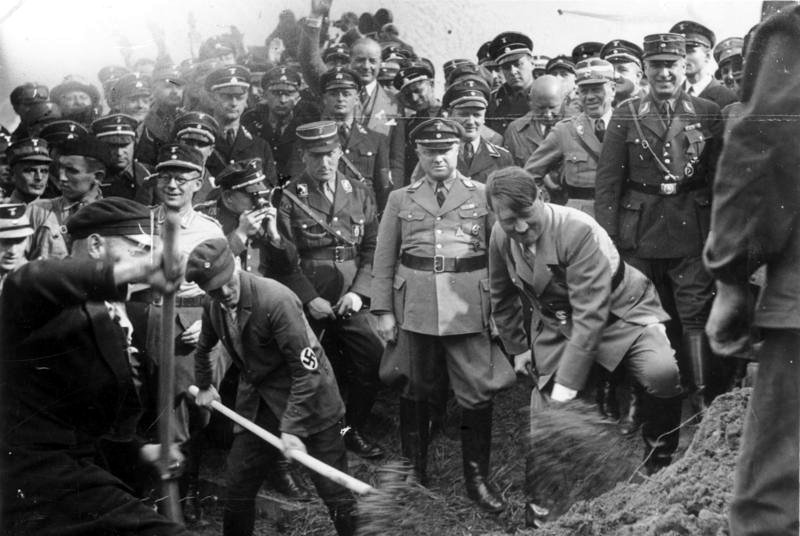
The German economy, like those of many other western nations, suffered the effects of the Great Depression with unemployment soaring around the Wall Street Crash of 1929. When Hitler became Chancellor in 1933, he introduced policies aimed at improving the economy of Nazi Germany. The changes included privatization of state industries, autarky, and tariffs on imports. Wages increased by 10.9% in real terms during this period. However, reduced foreign trade meant rationing in consumer goods like poultry, fruit, and clothing for many Germans.
By the early 1940s, over 500 companies in key German industries had been nationalized, mostly accomplished through the creation of the Reichswerke Hermann Göring in 1937. Multi-national industries in occupied territory were particularly targeted for state ownership, where the Reichswerke absorbed between approximately “50 – 60 per cent” of heavy industry in Czech and slightly less in Austria. The Göring industrial empire was a major attempt towards “restricting private industrial capitalism and substituting a ‘völkisch’, state-run industrial economy.”
In 1934 Hjalmar Schacht, the Reich Minister of Economics, introduced the Mefo bills, allowing Germany to rearm without spending Reichsmarks but instead paying industry with Mefo bills (Government IOU's) which they could trade with each other. Between 1933 and 1939 the total revenue amounted to 62 billion marks, whereas expenditure (at times comprising up to 60% rearmament costs) exceeded 101 billion, thus causing a huge deficit and national debt (reaching 38 billion marks in 1939 and coinciding with Kristallnacht [November 1938] and with intensified persecutions of Jews and the outbreak of World War II.) By 1938 unemployment was practically extinct.
Geography
History
Population
- -- City (4,242,501) - June 16, 1933 census
Arenas
- -- Olympiastadion (Olympic Stadium)
Attractions
Bars and Clubs
Cemeteries
City Government
Crime
Citizens of the City
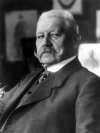 Paul von Hindenburg -- The second President of Germany from 1925–34 - 1933 Paul von Hindenburg -- The second President of Germany from 1925–34 - 1933
|
The Nazi Party
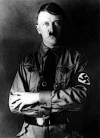 Adolf Hitler -- "Chancellor of Germany - 1933" Adolf Hitler -- "Chancellor of Germany - 1933"
|
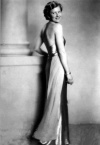 Eva Braun -- "Hitler's Mistress - 1933" Eva Braun -- "Hitler's Mistress - 1933"
|
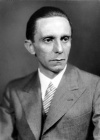 Joseph Goebbels -- "Reich Minister of Propaganda - 1933" Joseph Goebbels -- "Reich Minister of Propaganda - 1933"
|
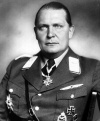 Hermann Goering -- "President of the Reichstag - 1933" Hermann Goering -- "President of the Reichstag - 1933"
|
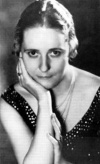 Emmy Sonnemann -- "Prominent actress at the National Theatre in Weimar - 1933" Emmy Sonnemann -- "Prominent actress at the National Theatre in Weimar - 1933"
|
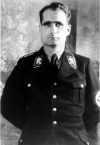 Rudolf Hess -- "Deputy Führer - 1933" Rudolf Hess -- "Deputy Führer - 1933"
|
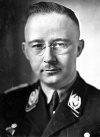 Heinrich Himmler -- "Reichsführer-SS - 1933" Heinrich Himmler -- "Reichsführer-SS - 1933"
|
100px Martin Bormann -- "Personal Secretary to the Deputy Führer - 1933" | 100px Robert Ley -- "Head of the German Labour Front - 1933" | 100px [[]] -- - 1933 | 100px [[]] -- - 1933 | 100px [[]] -- - 1933 | 100px [[]] -- - 1933 | 100px [[]] -- - 1933 | 100px [[]] -- - 1933 | 100px [[]] -- - 1933 | 100px [[]] -- - 1933 | 100px [[]] -- - 1933 | 100px [[]] -- - 1933 | 100px [[]] -- - 1933 | 100px [[]] -- - 1933 | 100px [[]] -- - 1933 | 100px [[]] -- - 1933 | 100px [[]] -- - 1933 | 100px [[]] -- - 1933 | 100px [[]] -- - 1933 | 100px [[]] -- - 1933 | 100px [[]] -- - 1933 | 100px [[]] -- - 1933 | 100px [[]] -- - 1933 | 100px [[]] -- - 1933 |
Other German Citizens
| 100px Bernhard Weiss -- Deputy Police Chief of Berlin - 1933 | 100px Erich Raeder -- Admiral and Commander-in-Chief of the Reichsmarine - 1933 | 100px [[]] -- - 1933 | 100px [[]] -- - 1933 | 100px [[]] -- - 1933 | 100px [[]] -- - 1933 | 100px [[]] -- - 1933 | 100px [[]] -- - 1933 | 100px [[]] -- - 1933 | 100px [[]] -- - 1933 | 100px [[]] -- - 1933 | 100px [[]] -- - 1933 | 100px [[]] -- - 1933 | 100px [[]] -- - 1933 | 100px [[]] -- - 1933 | 100px [[]] -- - 1933 | 100px [[]] -- - 1933 | 100px [[]] -- - 1933 | 100px [[]] -- - 1933 | 100px [[]] -- - 1933 | 100px [[]] -- - 1933 | 100px [[]] -- - 1933 | 100px [[]] -- - 1933 | 100px [[]] -- - 1933 | 100px [[]] -- - 1933 | 100px [[]] -- - 1933 |
- -- German Citizen - 1933 -- Character Prototype
Current Events
Fortifications
Galleries
Holy Ground
Hospitals
Hotels & Hostels
Landmarks
Law Enforcement
Mass Media
Monuments
Museums
Parks
Private Residences
Restaurants
Ruins
Schools
Shopping
Telecommunications
Theaters
Transportation
Vampires of the City
Nosferatu
 Melitta Wallenberg -- Die verführerische Kanalratte Melitta Wallenberg -- Die verführerische Kanalratte
|
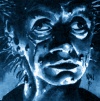 Ellison Humboldt -- Die Wahrheit in den Mauern Ellison Humboldt -- Die Wahrheit in den Mauern
|
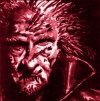 Ugly Rasputin -- Die unaufhaltsamen Wut Ugly Rasputin -- Die unaufhaltsamen Wut
|
 Amelia -- Die weinende Frau Amelia -- Die weinende Frau
|
Tremere
 -- Maxwell Ldescu -- Regent of the West -- Der Magus -- Maxwell Ldescu -- Regent of the West -- Der Magus (The Magus) | |
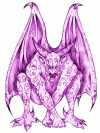 -- Gotthold -- Chantry Guardian & Elder Gargoyle of Berlin -- Gotthold -- Chantry Guardian & Elder Gargoyle of Berlin
|
 -- Falk -- Gargoyle bodyguard to Ldescu -- Falk -- Gargoyle bodyguard to Ldescu
|
Ventrue
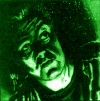 -- Gustav Breidenstein -- The Prince of Berlin -- Gustav Breidenstein -- The Prince of Berlin
|
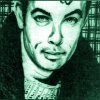 -- Wilhelm Waldburg -- The Eldest Son -- Wilhelm Waldburg -- The Eldest Son
|
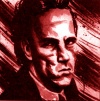 -- Peter Kleist -- The Second Son -- Peter Kleist -- The Second Son
|
 -- Katarina Kornfeld -- The Royal Daughter -- Katarina Kornfeld -- The Royal Daughter
|
Websites
